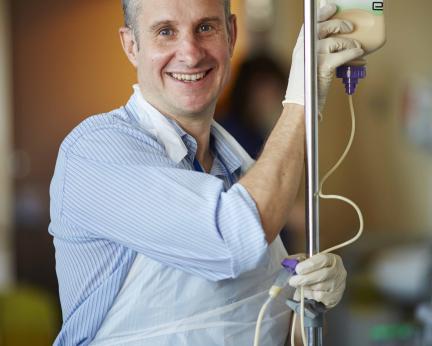I’m part of a multidisciplinary nutrition team with a pharmacist, nutrition nurse and doctor. Every morning we do a ward round of around 20 patients on intravenous feeding known as total parenteral nutrition. I monitor patients’ progress and work out their requirements in terms of energy, fats, proteins, carbohydrates, vitamins and minerals which helps the pharmacist to devise a suitable feeding regime for the patient.
In the afternoons I work on surgical wards or the intensive care unit. Surgical patients often need building up before their operation with food, oral nutritional supplements or tube feeds and usually need nutritional support to help them recover after surgery. Intensive care patients usually need to be fed through tubes and drips and I decide on the best feeding options for them.
Working in a district general is far from boring. There are complex patients, and due to there being fewer expert doctors than in the teaching hospital, I have use my own initiative a lot more. It means using the skills I learned in the specialist centre. I also don’t lead a team any longer but do much more teaching, passing on my experience, including junior doctors on issues such as malnutrition, parenteral nutrition and intravenous fluids. I am also a non-medical supplementary prescriber allowing me to prescribe some drugs, parenteral nutrition, fluids, vitamins and electrolytes.





